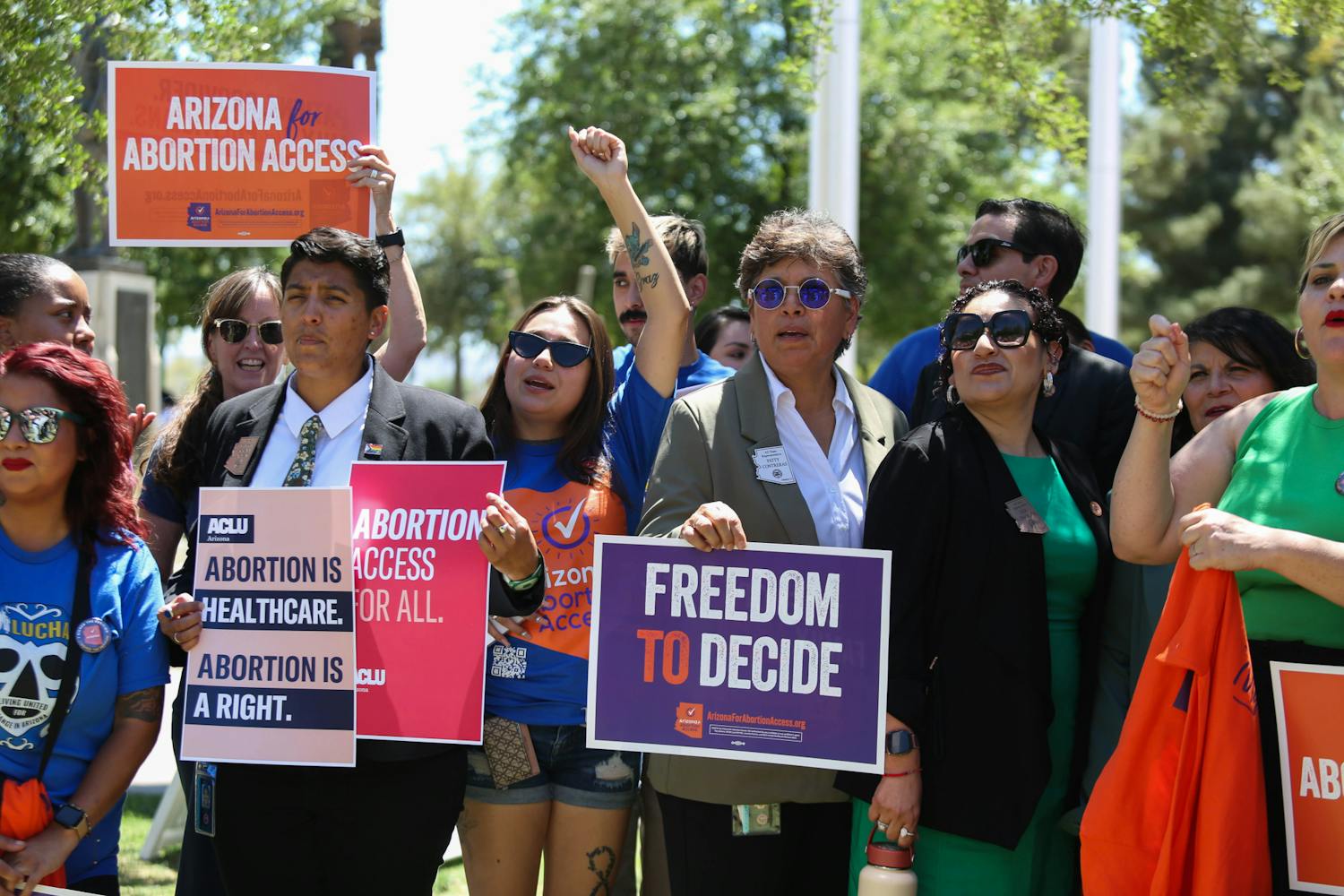Podcast editor Alfred Varela sits down with politics reporter Michelle Zhao to discuss the recent lawsuit from the Attorney General Mark Brnovich against the Arizona Board of Regents. They discuss the ensuing legal battle, the implications of the case's outcome and the potential concerns of an ASU student.
Alfred Varela: Earlier this month, Attorney General Mark Brnovich filed a lawsuit against the Arizona Board of Regents over private businesses being leased University-owned, tax exempt land. Brnovich alleges that ASU leasing land to commercial businesses is a failure to comply with an Arizona statute meant to reserve the land exclusively for things that benefit the state and its institutions. The Arizona Board of Regents, or ABOR, attempted to revise its existing real estate development policies in December of 2018 but evidently they proved insufficient for Brnovich. But what did these revisions entail? And what happens from here? State Press Politics Reporter Michelle Zhao delves deeper.
Michelle Zhao: Some of it was general stuff, they wanted more reports from ASU before they approve or disapprove any leases, the general risk management or market assessment, just very basic aspects. But there was one clause that they included in the policy that said the University can't engage in these lease deals if the whole purpose is to exempt the property from taxes. So the policy explicitly states that, but the thing is when I was talking with a senior research analyst from the Tax Association, Sean McCarthy, he was saying that it is nice that ABOR included that clause. However, it's still very subjective because as long as ABOR believes that ASU isn't doing it to evade taxes, then they can just approve the lease agreement.
Before the lawsuit occurred, I actually interviewed them, and I was talking about the general policy, and I asked them specifically how do they determine what benefits the University. And they use the three existing examples Marina Heights, Omni Hotel and Conference Center and Mirabella. First they talked about the Mirabella Center and they were saying "It might be turned into a senior living home," and they were saying things like "We can establish some kind of health program between ASU and have students go there and engage with the residents." Or he was using other justifications like people might live in the upcoming Omni Hotel Center.
In part of the lawsuit that the attorney general put out he actually cited that policy word for word and he said that it wasn't sufficient. But then this whole issue goes a couple years back, and it was actually back in 2017 where in Arizona we have the Arizona Tax Research Association. They put out a report that was basically outlining these deals that ASU was making with these commercial properties and they were highlighting how a lot of it was kind of suspicious and that they believe that ASU didn't exactly have the authority. Then this caught the attention of a former representative for the Arizona legislature, Vince Leach, and he also noticed this problem. So after he did initial research he said he went to the attorney general for an opinion. Him going to the attorney general talking about the issue kind of prompted this whole lawsuit issue.
After he cited that one clause from the policy he was saying that it doesn't actually prevent ASU from engaging in these deals in the future. And that also it doesn't make what they're doing constitutional. I believe he cited Article 9 of the Arizona Constitution which is the article that's talking about taxes, like who you can tax and who's exempt from taxes. His stance is that ASU is violating one of the sections under Article 9, and he's just saying that this change in policy doesn't actually help fix that unconstitutionality part.
The real controversy with the issue isn't that ASU is engaging in these deals with private commercial entities. The main problem is that these commercial properties aren't paying taxes. So if for some reason in the future, if the attorney general won, ASU can still continue in commercial deals but they can't transfer their tax exempt status to those commercial properties.
Alfred Varela: For now, Brnovich plows onward on his quest to enforce property tax laws. Unsurprisingly, the lawsuit's outcome has several ramifications, some that might be of concern to an ASU student.
Michelle Zhao: So one of the reasons why ASU says they are leasing out their property to commercial developments is to generate revenue for the University to use. So then some people are saying that "If they are no longer to engage in these deals that they might do something like raise tuition for the students to make up for that lost of revenue." But a lot of this is speculation, and it's kind of ironic how in years past that the attorney general tried to sue ABOR for unconstitutionally high tuition. In the end it just reverts back to money — where's the money coming from and how much money do we need to build something or to further develop the University.
Alfred Varela: For the State Press, I'm Alfred Varela.
State Press Places: The rush of skydiving with none of the risk
State Press Places: Easygoing axe throwing
State Press Places: A virtual reality arena built for the height of video game immersion
State Press Places: The mysterious castle looming over Phoenix
Reach the reporter at amvarel3@asu.edu and on Twitter @avstatepress.
Like State Press on Facebook and follow @statepress on Twitter.




